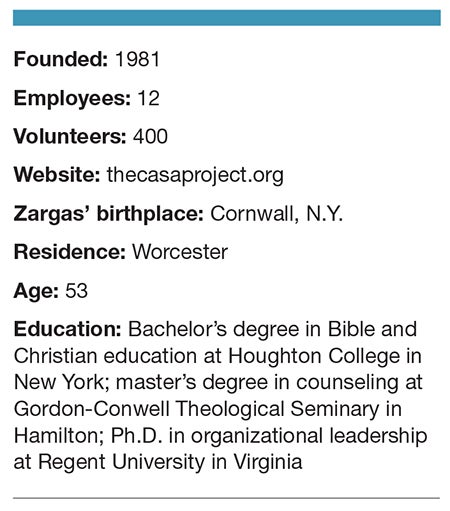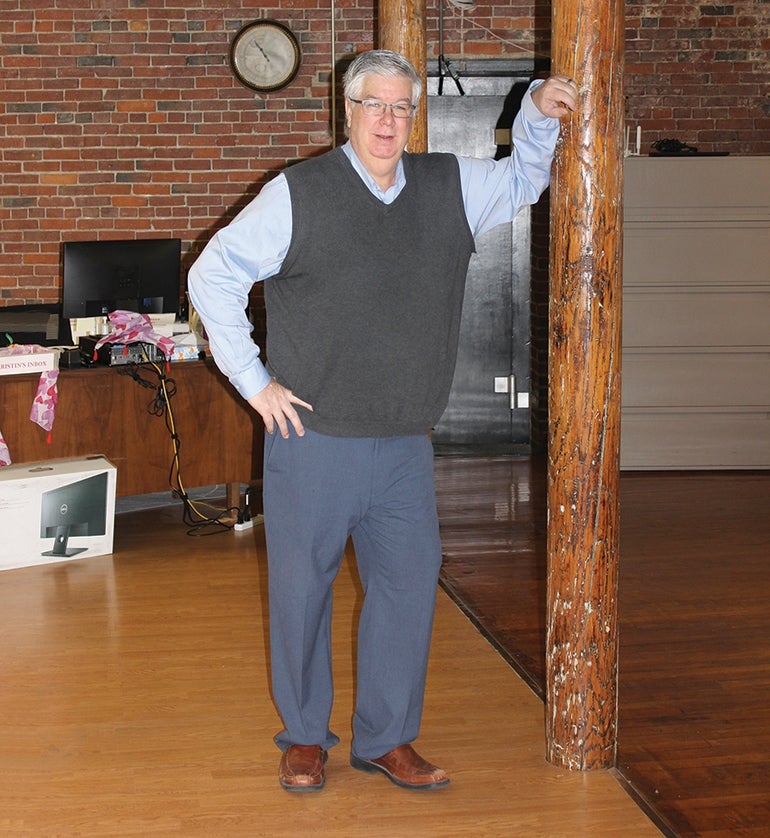Robb Zargas has spent his entire career helping at-risk children. For the last four years, he has run The CASA Project, which works with volunteers who help children in the foster care system, and more than doubled its reach in Worcester County.
Get Instant Access to This Article
Subscribe to Worcester Business Journal and get immediate access to all of our subscriber-only content and much more.
- Critical Central Massachusetts business news updated daily.
- Immediate access to all subscriber-only content on our website.
- Bi-weekly print or digital editions of our award-winning publication.
- Special bonus issues like the WBJ Book of Lists.
- Exclusive ticket prize draws for our in-person events.
Click here to purchase a paywall bypass link for this article.
Robb Zargas has spent his entire career helping at-risk children. For the last four years, he has run The CASA Project, which works with volunteers who help children in the foster care system, and more than doubled its reach in Worcester County.

How did you get your start?
I was a youth minister for eight years. I was a youth pastor in Connecticut, and the kids we were involved with were either involved in gangs or the juvenile justice system in some manner. I then started with a nonprofit organization called Straight Ahead Ministries in Meriden, Conn., to help kids transitioning out of the juvenile justice system. I did that for 20 years.
Then for about five years, I worked with runaway homeless youth, as executive director for the nonprofit Bridge over Troubled Waters in Boston. After consulting for a little while, this job came open, and it is a perfect fit for me. I’ve been here about four years.
Why is CASA the perfect fit?
The most stable indicator of a young person becoming homeless or involved in the juvenile justice system is multiple foster placements. What we try to do here is minimize the number of placements and get kids out of the foster care system as soon as possible. Because of my experience, it is a perfect fit for me professionally.
I also adopted three children out of the foster care system in Connecticut, so personally it is a perfect fit for me as well. My children are Josh, who is 24, and the twins, Jack and Eli, who are 19. Hannah is my daughter from my second marriage, and she is about to graduate from Syracuse University.
Why did you choose to adopt?
I was a foster parent for about eight years, focused on adolescent boys from the juvenile justice system. As we thought about starting to have our own biological children, we said there were a lot of children in need in the foster care system, so we decided to adopt instead. We had seen the impact of being able to have kids adopted instead of staying in the foster care system.
How is everything at CASA?
We’ve doubled in size over the last four years. We went from serving 450 kids per year to almost 900 kids per year. The budget has doubled as well, crossing the $1-million threshold for the first time this year. We have improved relationships with the Massachusetts Department of Children & Families, as well as with the court.
What are your goals?
Each year, 1,700 kids come into the foster care system in Worcester, and we would like to be able to serve all of them. However, it is about building capacity, so we need to raise more money and hire more staff, who can serve more volunteers.
We need to raise about $250,000 more per year in order to serve every child in the foster care system. We are serving about 63% right now.
Are there more foster children now?
There has been a gradual increase over the last three years, because of the opioid epidemic. The opioid impact on parents has seen more kids being removed from their homes due to abuse and neglect.
How do you fundraise more money?
The foundations in the Worcester area have been extremely generous with us, providing longstanding support. The government is doing its share as well. The areas where we have the biggest growth potential are individual support and corporate support.
We do some corporate foundation grants, but the big difference would be corporations sponsoring events or just directly sponsoring what we do here.
How do you engage more individuals and companies?
The key is increasing our contacts with people: People introducing us to other people, us being out at events, helping people understand who we are. We aren’t a Latino housing program; we support foster care children.
Our board has been really awesome in helping us develop a list of people and events. About a month ago, we had our Champions for Children event and were engaging with all sorts of people who are new to CASA. Now, I’m going out and meeting with them, having coffee with them, etc. It is one person at a time.
This interview was conducted and edited for length and clarity by WBJ Editor Brad Kane.

